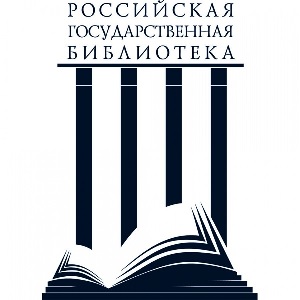ВЗАИМОСВЯЗЬ ПРОЦЕССОВ ЦИФРОВИЗАЦИИ ЭКОНОМИКИ И ЭКОНОМИЧЕСКОЙ БЕЗОПАСНОСТИ СТРАНЫ
Аннотация
В статье рассматривается взаимосвязь цифровизации экономики и экономической безопасности страны. Авторами обосновывается дуалистический статус цифровизации в части влияния ее последствий на безопасность экономической системы государства и отдельных хозяйствующих субъектов. Данный статус определяется посредством проведения классификации последствий цифровизации по их положительному и отрицательному воздействию, а также посредством проведения экономико-статистического анализа, позволяющего количество подтвердить или опровергнуть выдвигаемые гипотезы. Отражены последствия цифровизации экономики как фактора, способствующего обеспечению экономической безопасности страны и отдельных хозяйствующих субъектов. Данные последствия сгруппированы в восемь блоков. Представлены информационные технологии, применяемые для целей обеспечения экономической безопасности. Отражены последствия цифровизации экономики как угрозообразующего фактора, в системе обеспечения экономической безопасности страны и отдельных хозяйствующих субъектов. В результате определено семь групп угроз, вызванных процессами цифровизации экономики. Представлены результаты корреляционного анализа, целью которого была проверка: гипотезы о положительном влиянии цифровизации на экономическую безопасность и гипотезы об отрицательном влиянии цифровизации на экономическую безопасность. Для этой цели анализировались показатели цифровизации экономики и показатели: экономического роста; производительности труда, безработицы, преступности. На основе полученных коэффициентов корреляции был сформулирован вывод о преобладании положительного влияния цифровизации экономики на экономическую безопасность страны над ее отрицательными последствиями. Сформулированы практические рекомендации по использованию результатов анализа для целей прогнозирования показателей экономической безопасности страны в зависимости от ожидаемых значений показателей цифровизации экономики и таргетирования показателей цифровизации экономики страны под заданные значения показателей экономической безопасности страны.
Литература
Zharnitskaya K.D. The impact of the digital economy on the economic security of the state. Actual research. 2021. N11(38). P. 53-56. EDN XDGACI. (in Russian).
Shatskaya E.Sh., Suyunova G.L. Digital economy: pros and cons. Materials of the International Scientific and Practical Conference «The role of the digital economy in strengthening the economic security of the country». Grozny: Chechen State Pedagogical University. 2019. P. 160-165. EDN PIYOCE. (in Russian).
Voronkov A.N. Risks of economic security from digital economy technologies. Russian Economic Online Journal. 2019. N 4. P. 34. EDN GHWGJF. (in Russian).
Grafova T.O., Shapovalov A.F. Risks and threats to economic security in the digital economy. Azimut of scientific research: Economics and management. 2020. Vol. 9. N 1(30). P. 382-386. DOI 10.26140/anie-2020-0901-0096. EDN YJXHJD. (in Russian).
Gareeva N.A., Sevastyanova M.I. Threats to economic security in the conditions of digitalization of the economy. Materials of the V International Scientific and Practical Conference «Actual problems of legal, economic and socio-psychological knowledge: theory and practice». Donetsk: Digital Printing House. 2021. P. 453-455. EDN HURRGO. (in Russian).
Popov E.V., Semyachkov K.A. Problems of economic security of digital society in the conditions of globalization. The economy of the region. 2018. Vol. 14. N 4. P. 1088-1101. DOI 10.17059/2018-4-3. EDN VPKTKO. (in Russian).
Tolochko A.V. Threats to economic security in the conditions of digitalization of the economy. Innovation and investment. 2019. N 4. P. 67-69. EDN LYWWWU. (in Russian).
Udalov D.V., Koblova Yu.A. The role of the state in ensuring economic security in the conditions of digitalization. Bulletin of the Saratov State Socio-Economic University. 2019. N 3(77). P. 28-31. EDN XEPWXM. (in Russian).
Shinkaretskaya G.G., Berman A.M. Digitalization and the problem of ensuring national security. Education and Law. 2020. N 5. P. 254-260. DOI 10.24411/2076-1503-2020-10544. EDN GTBPYP. (in Russian).
Astrakhantseva I.A., Khomyakova A.A. Digitalization of the economy as a factor of socio-economic development of the region. News of higher educational institutions. Textile industry technology. 2022. N 2(398). P. 31-45. DOI 10.47367/0021-3497_2022_2_31. EDN RHDNIA (in Russian).
Grachev A.V., Sikorskaya L.V., Vinogradova Yu.A. Assessment of counterparty reliability as a tool for ensuring economic security of an economic entity. Ivecofin. 2022. N4(54). P. 44-52. DOI 10.6060/ivecofin.2022544.625. EDN ECNPW. (in Russian).
Rossinskaya E.R., Ryadovsky I.A. Modern methods of computer crimes and the legality of their implementation. Lex Russica (Russian Law). 2019. N 3(148). P. 87-99. DOI 10.17803/1729-5920.2019.148.3.087-099. EDN UALFOP. (in Russian).
Teppeev A.A., Urusov Z.H., Krainskaya G.S. Application of digital technologies in the Department of Internal Affairs. Law and management. 2022. N 9. Р.107-110. (in Russian).
Kubasov I.A. Problematic issues of the use of artificial intelligence technologies in the activities of the internal affairs bodies of the Russian Federation. Bulletin of the Voronezh Institute of the Ministry of Internal Affairs of Russia. 2021. N3. P. 180-186. (in Russian).
Romanov M.S., Didyuk A.Ya., Trifonenko N.M., Solodyankin D.V. The impact of digitalization on the activities of the Ministry of Internal Affairs of Russia. Legal Science. 2022. N 7. P. 48-51. (in Russian).
Kubasov I.A., Sekisov B.V. Retrospective analysis of the development of information technologies in the management of internal affairs bodies of the Russian Federation. Academic Thought. 2021. N 4(17). P. 90-93. (in Russian).
Toropov B.A., Gonov Sh. Kh. Results of a study of the readiness of police officers to introduce artificial intelligence into the operational and official activities of the internal affairs bodies of the Russian Federation. Proceedings of the Academy of Management of the Ministry of Internal Affairs of Russia. 2022. N 2(62). P. 160-167. DOI 10.24412/2072-9391-2022-262-160-167. (in Russian).
Farahiev D.M., Minzyanova D.F. Prospects for the introduction of information and communication technologies in the activities of operational police units for combating corruption. Modern science. 2022. N 1. P. 60-63. (in Russian).
Okorokov R.V., Timofeeva A.A. Features of the application of digital supervisory technologies in the domestic financial market. Ivecofin. 2022. N 4(54). P. 36-43. DOI 10.6060/ivecofin.2022544.624. EDN HWOHFZ. (in Russian).
Abramova E.A. Digital economy as a key factor of effective management of modern business processes. Ivecofin. 2018. N4(38). P. 56-60. EDN VPGUNM. (in Russian).













